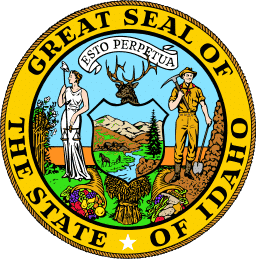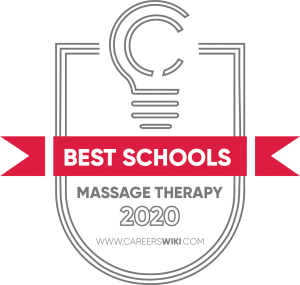…
There are 13 massage therapy schools in Idaho that state authorities have approved. The curricula combine classroom learning with hands-on labs and real-world clinical experiences.
Most schools offer occupational or vocational certificate programs, which typically take about a year to complete. Some larger institutions award two-year associate’s degrees. Graduates must obtain state licenses to practice in the state.
Idaho massage therapists have fewer employment opportunities than their peers in many other states, but their salaries and hourly wages exceed the national average. Experts expect the job-growth rate here to outpace the U.S. median from 2016-2026.
If you would like to view massage therapy schools in other states, click this link and select a state.

This government agency, a division of the Idaho Bureau of Occupational Licenses, consists of five members. Its mission is “to protect the health, safety, and welfare of the public through the licensure and regulation of massage therapists.”
The board reviews license applications to confirm that prospective practitioners have the education, test scores, and other qualifications that the state code mandates. The panel also enforces rules governing license renewals and continuing education requirements.
In addition, the board registers massage therapy schools. It recognizes only universities, colleges, and institutes that offer education programs meeting state standards concerning curricula.
To be considered for admission to a massage therapy school, a student needs a high school diploma or GED. Some schools recommend taking certain preparatory classes during the junior and senior years of high school.
The state code stipulates that an approved school program must provide at least 500 clock hours of instruction and training. This is to include:
Beyond the required coursework, programs vary in the types of massage techniques and other therapies they teach.
To become a massage therapist in Idaho, a graduate of an accredited, approved school must apply for a state license. To qualify, it is necessary to post an acceptable score on the Massage and Bodywork Licensing Examination (MBLEx).
The 100-question, multiple-choice test assesses a student’s comprehension of concepts such as client assessment, treatment plans, the benefits and physiological effects of massage techniques, pathology and contraindications, therapy for special populations, ethics, laws, and regulations.
The Federation of State Massage Therapy Boards administers the exam. Applicants may register online, with the payment of a substantial fee.
Students take the MBLEx at a Pearson VUE Testing Center. The company has three sites in Boise, as well as one in Nampa and another in Twin Falls. Pearson VUE sends exam results to the state board.
Practitioners must renew their licenses every year, which involves obtaining six credits of continuing education. This must include one hour of ethics.
We selected the schools below based on the programs that they offer, accreditation, student population, graduation rate and reputation.
View our Ranking Methodology to learn more about how we rank schools.

NA
This school, in the southeast Idaho city of the same name, offers daytime and evening certificate programs that begin in January, May, and September.
The curriculum consists of 825 clock hours, which take eight and a half months to complete. Among the massage techniques that students learn are Swedish, chair, sports, deep tissue, lymphatic, and prenatal/infant. Classes also cover aromatherapy, hydrotherapy, reflexology, acupressure, Zen Shiatsu, clinical therapies, energetics, body mechanics and self care, and special needs.
The program includes at least five hours per week administering massages at the school’s student clinic.
91%
28
Students here, at Bingham Memorial Hospital in Blackfoot, benefit from pursuing their certificates in a real-world setting. They take part in hospital internships and clinical practicums.
The 638-hour program is available during the day, for 10 months; or in the evenings, which takes 13 months. The school touts its “small class size for individualized attention.” Students learn Swedish, sports, side-lying, deep tissue, chair, and palliative care massage modalities.
The coursework also covers neuromuscular and trigger point therapy, spa methods and practices, reflexology, hydrology, myofascial release, Asian theory, clinical assessment, advanced pain management, and manual lymphatic drainage.
72%
99
This private school, formally known as the Milan Institute of Cosmetology, has campuses in four states. The Amarillo College of Hairdressing Inc. is the governing body.
The 740-hour massage therapy certificate program takes 34 weeks to complete. There are five prerequisite classes: Strategies for Success, Professional Development, Introduction to Anatomy & Physiology, Swedish Massage Basics, and Ethics.
Other courses include Shiatsu, Passive Joint Mobilization, Acupressure, Reflexology, Aromatherapy & Hydrology, and CPR/First Aid. Students learn sports, deep tissue, prenatal and pediatric, and chair massage techniques. They participate in a practicum and a clinical internship.
74%
429
This is one of six Carrington campuses in several Western states where students earn certificates and associate degrees in massage therapy.
The private school’s 765-hour certificate program takes about nine months. Students learn Swedish, deep tissue, sports, and chair massage. They also take classes in Shiatsu, dry-room spa techniques, personal care, communication skills, practice management, and success skills. There is a career development seminar and a clinical practicum.
To earn an associate of science degree in massage therapy, a student must complete 24-36 semester credit hours of general education classes. This typically takes 42 weeks of study.
33%
12493
This large public institution hosts massage therapy programs with a 100 percent employment rate for graduates.
The Massage Therapy Intermediate Technical Certificate program entails 725 educational hours in one and a half years. Prerequisite courses are Medical Terminology, Massage Therapy Career Exploration, and Introduction to Anatomy & Physiology.
The school offers a two-year, 1,120-hour associate in applied science program. In addition to six general education classes and the usual massage therapy coursework, students take Spa Techniques, Asian Bodywork, and Sports Massage. They also conduct case report research projects.
Four-year bachelor’s degree programs are available in applied science and health science.
$21
$44,800
32%
The typical massage therapist in this state earns about $44,800 a year or $21.50 per hour, more than the national average of over $41,400 annually or about $20 hourly.
The top 10 percent of Idaho practitioners make over $83,000 (or about $40), compared with about $78,300 (or around $37.75) nationally. The bottom 10 percent get $28,200 (or $13.50), better than $21,300-plus (or about $10.25) nationally.
The U.S. Bureau of Labor Statistics predicts that the number of massage therapists in Idaho will increase from 300 in 2016 to 390 in 2016. That would be a job-growth rate of 32 percent, faster than the projected 26 percent nationally.
Sources: U.S. Bureau of Labor Statistics, CareerOneStop

LIMITED TIME DEAL